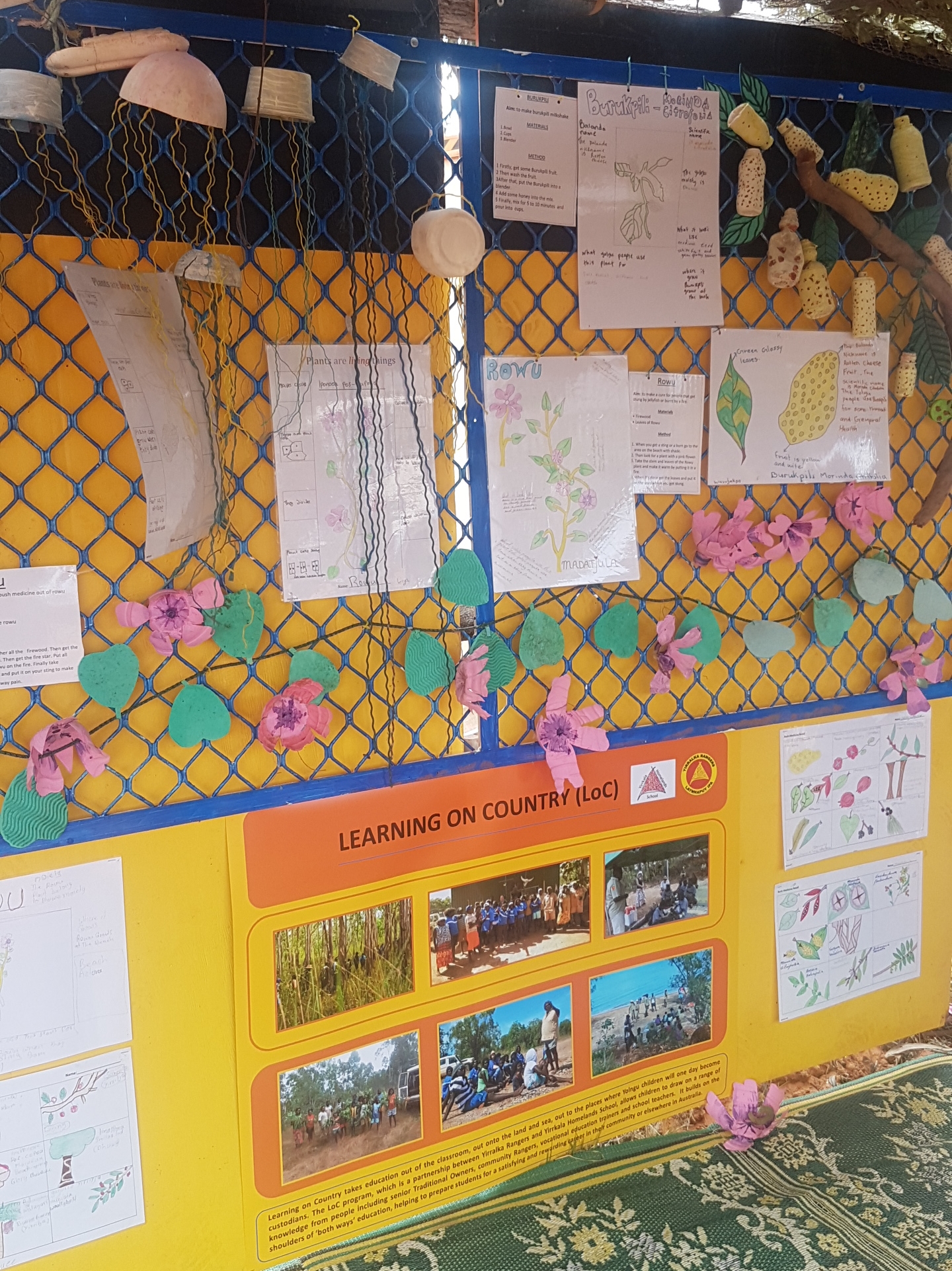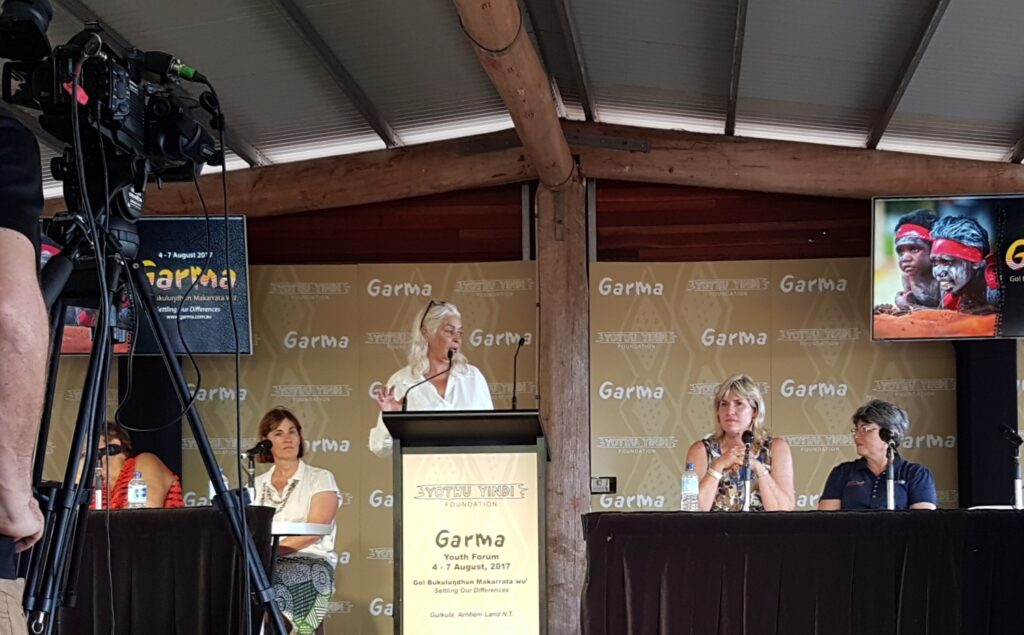 There were encouraging signs of the development of a more progressive direction in education at the 2017 Garma Festival in Arnhem Land. The Education Forum brought together a range of guest speakers to discuss pathways to improving education for Indigenous students.
There were encouraging signs of the development of a more progressive direction in education at the 2017 Garma Festival in Arnhem Land. The Education Forum brought together a range of guest speakers to discuss pathways to improving education for Indigenous students.
Education Minister Eva Lawler emphasised the need to find approaches that engage students in preference to a narrow focus on attendance.
The minister said there were no silver bullets for solving the problem of underachievement and acknowledged the hard work that NT teachers do every day in difficult circumstances.
She identified three key areas of focus: ensuring there is quality teaching taking place in every classroom; “growing our own” – meaning increasing the number of locally-trained teachers; and enhancing school leadership. Underpinning these strands is the importance of educators building relationships and trust with student.
Key components of this would include better recruitment practices, and more support for teachers in the form of mentoring and professional development opportunities.
In the remote context, she stressed the Government’s commitment to ensuring students and families have a genuine choice, acknowledging that this might be boarding school in some cases, but that equally there needs to be strong local options incorporating distance education provision and vocational pathways.
The minister reiterated the Government’s election commitment to develop a community-led schools approach, to give remote schools more autonomy in setting curriculum directions. In the curriculum area this includes strengthening the Indigenous languages and culture framework.
These remarks were welcomed by the audience and led nicely into a showcase of the work being undertaken through the Learning on Country (LoC) program at Yirrkala School in partnership with Dhimurru Rangers (LoC is also operating at Yirrkala Homeland School, Shepherdson College, Maningrida and on Groote Eylandt).
The LoC program brings together the expertise of teachers, elders and rangers to develop high-quality integrated curriculum approaches. LoC offers senior secondary students the opportunity to achieve qualifications in conservation and land management, as well as contributing to the completion of Year 12. A crucial element in the program’s success has been its explicit focus on enhancing students’ sense of wellbeing and identity.
During a panel discussion that followed, DoE Chief Executive Vicki Baylis talked about the work the NT Department of Education is doing to develop a Social and Emotional Learning curriculum that acknowledges and responds to the prevalence of trauma in our student population.
Marnie O’Bryan has completed a PhD on the experiences of boarding school students. She said that unless many conditions are met, boarding schools can create a sense of dislocation for students and they end up lost between two worlds. She emphasised the lack of research underpinning the emphasis on boarding school as a viable pathway for Indigenous students.
Professor Elizabeth McKinley of the University of Melbourne talked about the transformation of Maori education in New Zealand and said the biggest difference had been Maori taking back control of education of their children at every level, from early years through to tertiary studies.
Merrkiyawuy Ganambarr, Co-Principal of Yirrkala School, reminded the audience that the local landscape is a source of richness and knowledge that provides ample opportunities for learning.
The Friday Education Forum is now a feature of Garma and an important environment to share stories of success and challenges in Indigenous education. The Forum discussions took place in the broader context of Garma’s focus on amplifying Indigenous voices in the development of laws and government policies.

